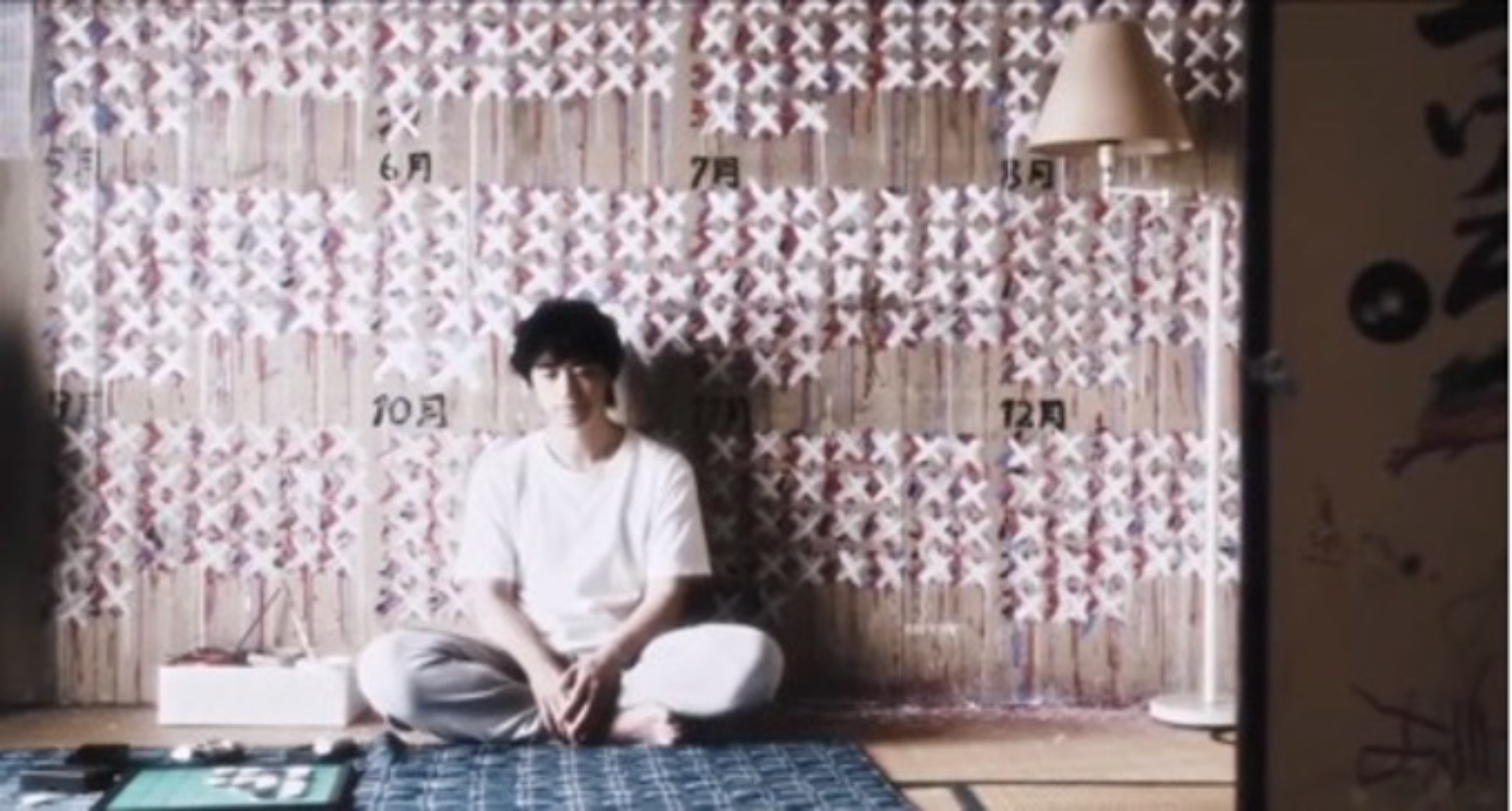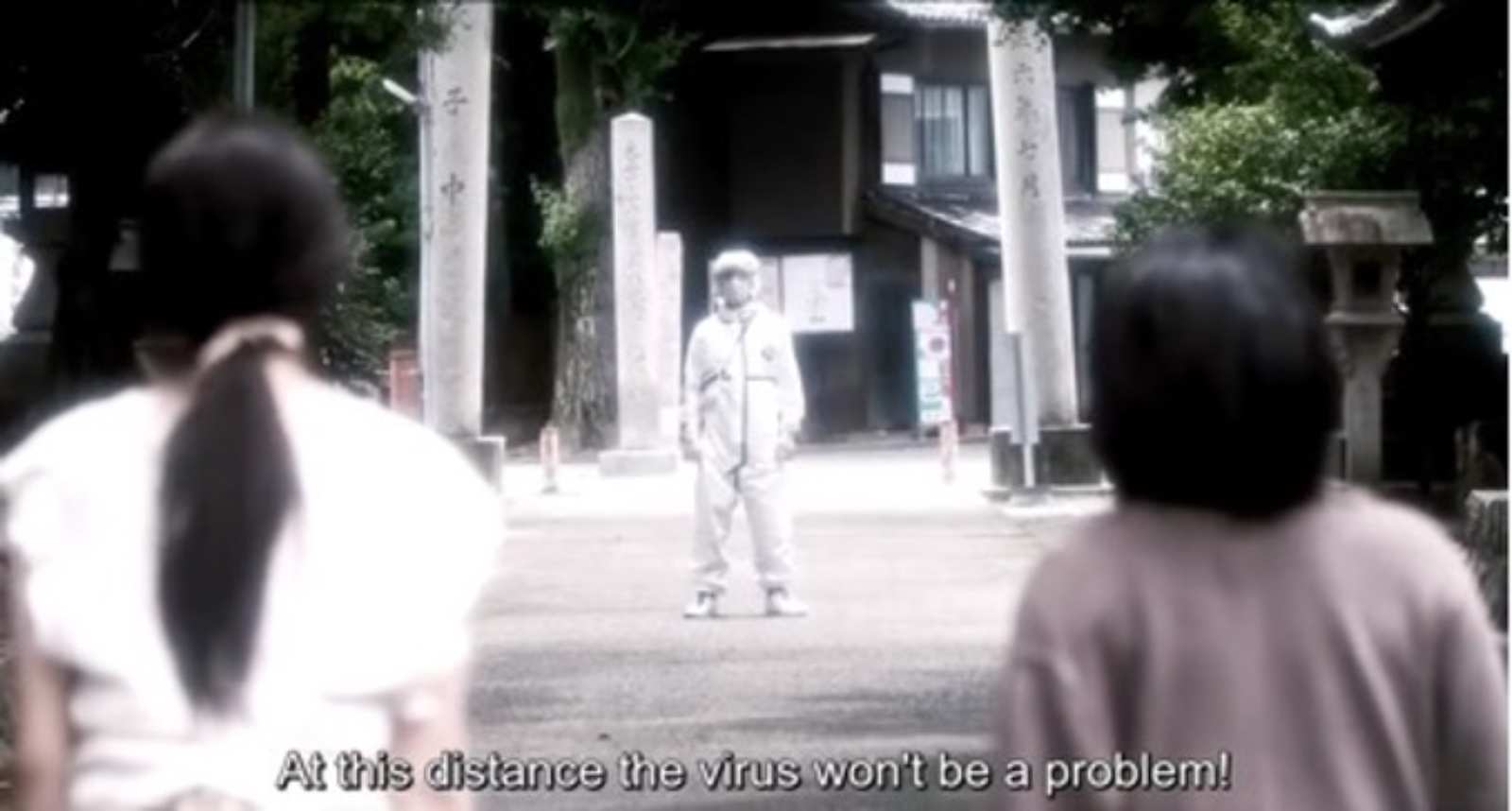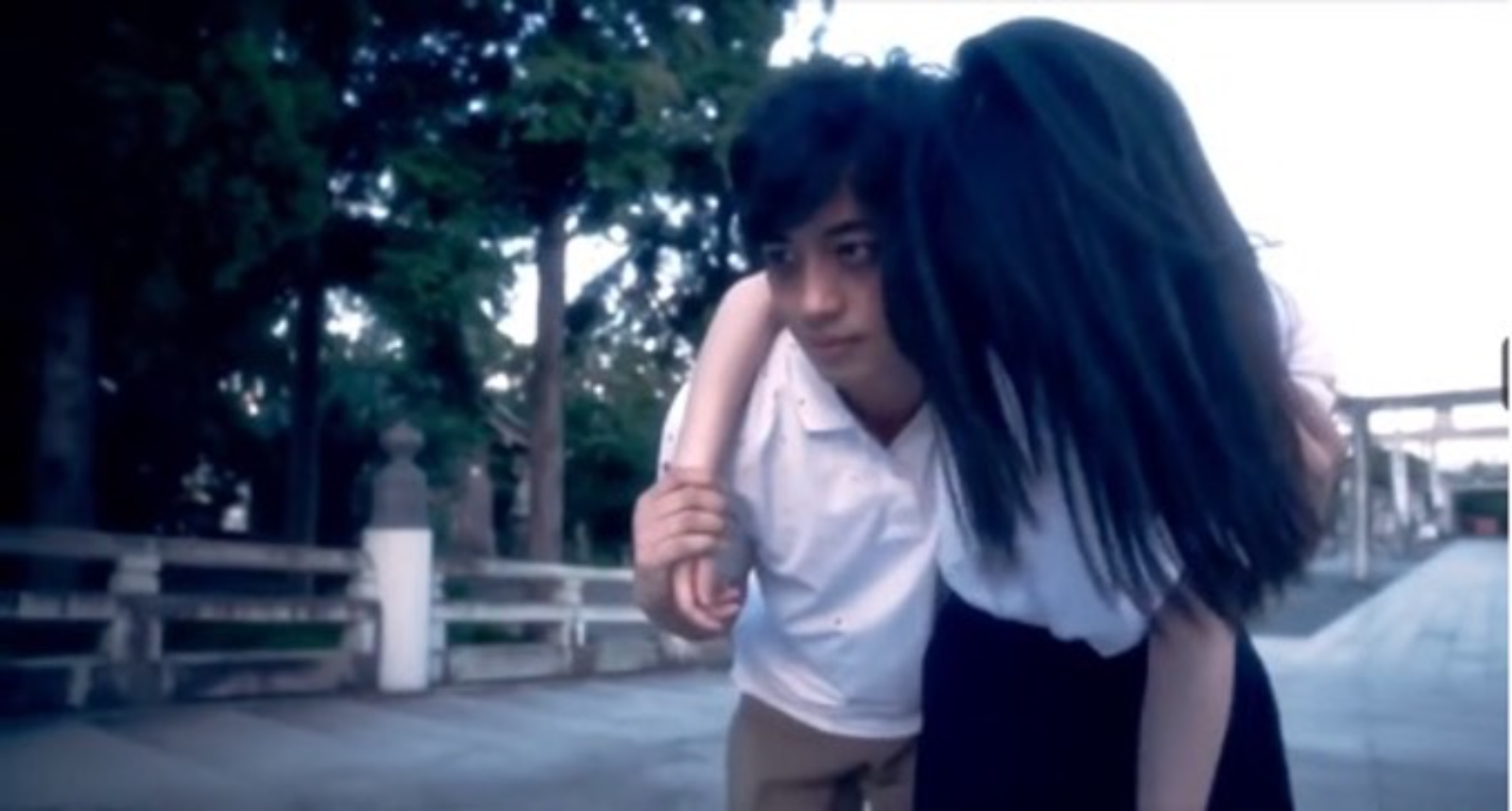Starting in April 2020, the Japanese government and prefecture officials gradually announced lockdown measures and declared a state of emergency. Sion Sono’s 37-minute short film, The Lonely 19:00 (孤独な19時), takes the anxieties and frustrations of the lockdown and stretches them into a dystopian future where lockdowns last 100 years and social distancing extends to 50 meters. By extending these conditions over a century, Sono critiques the long-term consequences of prioritizing biological survival over human connection. The protagonist, Otomi, embodies the extreme endpoint of pandemic-era alienation. He has lived his entire life in solitary confinement, follows strict routines to avoid infection. “Today is the 25th June. It’s the 30th time there’s a 25th June for me. But it means nothing. It was 24th June for the 30th time yesterday, but nothing changed.” (09:07–09:22), Otomi’s monologue precisely summarizes the temporal and existential paralysis of lockdown. Like many others during lockdown, he lives in a quiet loop of mundane activities—eating, exercising, staring at the walls.
However, the shock of seeing physical intimacy incidentally during an outing awakens a desperate longing in him. In a pandemic world, physical intimacy is an act considered transgressive, something that causes lethal consequences. However, his encounter with the kissing couple forces Otomi, and the audience, too, to confront the pandemic emptiness of mere survival. “I might die without kissing anyone” (31:24–31:30), Otomi’s subsequent decision to go out and meet an infected girl, constitutes both a rebellion against institutionalized fear and a tragic affirmation of life’s value beyond mindless existing. He finally awakens, “Being alive is not enough” (35:50–35:54). Otomi’s action, which is to risk contact and connection rather than continue existing in sterile isolation, serves as a profound critique of a pandemic that reduces the meaning of human life.
The colour tone is desaturated and hazy (at times almost monochromatic), therefore forming a surreal, dreamy atmosphere. The colorless austerity also reflects the emotional numbness of perpetual lockdown. A recurring sound effect is the ticking sound of the clock, a meaningless reminder of the passage of time. In 37 minutes, the film creates a narrative of speculative fiction. It provides an alternate history that echoes real-world debates during COVID-19 about the cost of perpetual isolation, particularly on mental health and social bonds. The film draws on pandemic psychology, serving as an allegory for a time when humans fail to account for the human need for touch, intimacy, and shared experiences.
 ,
,  , and
, and 
Image Captions:
Image 1. Otomi sitting in the living room by himself, behind him there is a calendar on the wall, where he marks each day as it goes. Screenshot of film still, The Lonely 19:00, directed by Sion Sono, 2020.Image 2. Otomi confronting the kissing couple, maintaining a social distance of 50 meters. Screenshot of film still, The Lonely 19:00, directed by Sion Sono, 2020.
Image 3. Otomi carrying the infected girl, despite knowing the fact she is contagious and her health is in a dangerous situation. Screenshot of film still, The Lonely 19:00, directed by Sion Sono, 2020.
Citation: The Lonely 19:00 (孤独な19時). Directed by Sion Sono, August 2020. SHORT FILM | JAPAN. yc
Source Type: Film and Theatre
Country: Japan
Date: 28-Aug-2020
Keywords: Alternate History, Japan, Lockdown, Short Film, and Speculative Fiction